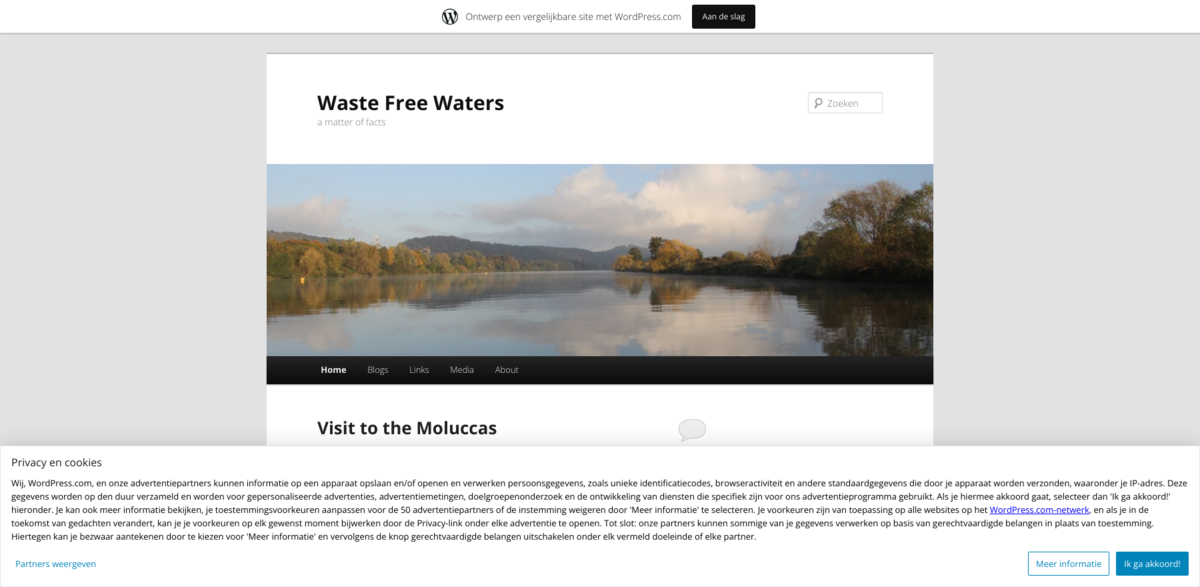What is Waste Free Waters?
Waste Free Waters (WFW) is a foundation dedicated to tackling the huge problem of litter polluting land, rivers, and seas. Founded by Gijsbert Tweehuysen, who spent over 30 years in the plastic packaging industry, WFW emerged from a deep sense of responsibility to find solutions for plastic pollution now that retirement allows focus on this critical issue. The foundation started with a simple, pragmatic approach—just beginning to understand riverine litter—and has since grown into a recognized expert in the field. Their work spans from developing sampling methods to consulting on innovative technologies aimed at reducing river and marine litter worldwide.
Main Benefits and Remarkable Achievements
Over the past five years, Waste Free Waters has made some impressive strides. Here are some key highlights:
- Developed a straightforward, reproducible method to sample rivers for macrolitter, understanding how different particles behave under various environmental conditions like season, precipitation, and river morphology.
- Gained recognition as an expert on riverine litter in both national and international forums, contributing to discussions on land-based sources of marine litter and helping shape a Europe-wide monitoring guidance document.
- Inspired the Schone Maas (Clean Meuse) project, which now sees all Limburg municipalities cooperating in annual riverbank cleanups, with the initiative spreading across the Netherlands and Belgium.
- Consulted for The OceanCleanup in Indonesia and Japan, sparking ideas for “mini-Plastic-to-Fuel” technology tailored for small communities in developing countries, addressing the global yet locally unique nature of riverine litter problems.
Visit to the Moluccas: Insights from the Field
In early 2017, Waste Free Waters shared a detailed report about a visit to the Moluccas, Indonesia. This trip highlighted the challenges of waste management in developing regions, where infrastructure is often lacking, and the scale of pollution is overwhelming. The experience reinforced the need for solutions that are not just technically sound but also economically and socially feasible for small, remote communities. It’s clear that while the technical nature of riverine litter is similar worldwide, the context varies dramatically, requiring tailored approaches.
Future Directions: What’s Next for Waste Free Waters?
Looking ahead, Waste Free Waters has set some ambitious goals for the next five years. First, they aim to refine and expand riverine sampling techniques, including developing a new sampling vessel. This will support the growing use of camera-based monitoring from bridges, helping calibrate visual data with actual litter quantities. Second, they plan to develop and introduce mini Plastic-to-Fuel equipment specifically designed for developing countries. These small-scale installations could provide local solutions where large infrastructure projects are not feasible, reducing transportation costs and economic vulnerability.
Why Support Waste Free Waters?
WFW operates on a shoestring budget, with minimal overhead since it’s run by a retired professional. Most expenses cover travel, basic equipment, and communication. However, the foundation needs funding to keep pushing forward—€10,000 to cover overhead costs, €75,000 for the new sampler development, and €50,000 for the mini Plastic-to-Fuel project including testing and introduction in Indonesia. Supporting WFW means investing in practical, scalable solutions to a global problem that affects everyone.
Project Impact: Linking to Sustainable Development Goals (SDGs)
- SDG 6: Clean Water and Sanitation – by reducing riverine litter, WFW helps protect freshwater ecosystems.
- SDG 11: Sustainable Cities and Communities – promoting cleaner urban waterways and surrounding environments.
- SDG 12: Responsible Consumption and Production – encouraging better waste management and recycling practices.
- SDG 14: Life Below Water – tackling marine litter at its riverine source to protect oceans.
- SDG 17: Partnerships for the Goals – collaborating internationally to share knowledge and develop solutions.
Open Communication and Collaboration
Transparency and open dialogue are at the heart of Waste Free Waters’ approach. The foundation welcomes contact from anyone interested in riverine litter issues, offering to share insights and experiences freely. This openness fosters a collective understanding and drives progress toward effective solutions. For those wanting to connect, WFW provides direct email and phone contacts, as well as active Facebook pages for both the foundation and its founder, Gijsbert Tweehuysen. It’s all about building a network to tackle this enormous, worldwide challenge together.






















